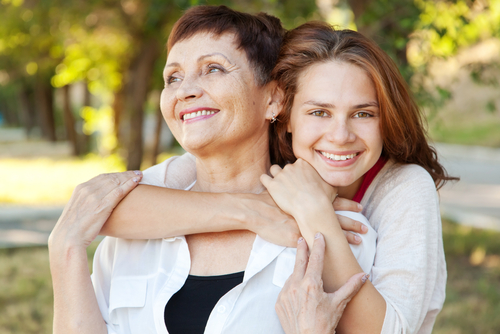TIPS FOR CAREGIVERS
Help Keep Your Loved Ones Safe
For every potential fall, there is a precaution that can be taken to avoid it. If you are the caregiver of an ailing or elderly parent while managing your own household and raising your kids, you are part of the sandwich generation, meaning you are sandwiched in between the needs of your parent and the needs of your children and/or spouse. Primary caregivers of aging parents have to initiate many difficult but necessary changes in the best interest of their parents’ health and well-being, including home and lifestyle modifications to prevent falls. Convincing an elderly parent to install grab bars or to use a walking device is often met with resistance.
Let them feel in control. Position the changes that you are introducing as projects your parent will manage - that they are implementing - even if this might not be the case. Language like "Mom, let’s go shopping for some pretty lamps for the living room" is the kind of message you want to convey as opposed to "you need better lighting or you’ll fall."
Let them keep their role as parent. Communicate to your parents that these changes helps you as much as them. Tell them your own peace of mind depends on knowing that they are safe.
Highlight their independence. Share the statistics on the dangers and consequences of falls, and highlight that safety measures like installing grab bars and starting an exercise program can prolong independence and mobility. Visual aids such as brochures, fact sheets, and checklists will help educate them.
Enlist expert influence. If none of these tactics help, you may need to bring in expert advice. Consider asking a doctor, lawyer, or senior advisor to recommend or even prescribe that your parent take safety precautions against falls.
As our senior population increases, so do the risks and incidences of debilitating falls. The statistics and possible outcomes may be alarming, but falls are generally preventable. By increasing awareness of the causes, implementing home safety precautions and making some simple lifestyle changes, everyone, and older adults in particular, can decrease the chances of taking a fall that could lead to injury, dependency or even death.
The risks and potential complications of falls can become a self-fulfilling prophecy for many seniors. Research indicates that the fear of falling actually increases the risk of falling.
According to the Centers for Disease Control: “Many people who fall, even if they are not injured, develop a fear of falling. This fear may cause them to limit their activities, which leads to reduced mobility and loss of physical fitness, and in turn increases their actual risk of falling.”
Understanding is key, and utilizing the following methods can mitigate resistance and defiance to change:

Drive's Fall Prevention Resource Page
View our fall prevention resource page to see more related articles.
Explore all of our Bathroom Safety Options
Drive offers a wide range of bath benches, grab bars and more to fit your specific safety needs in the bathroom.
Browse our diverse line of Mobility Products
Drive offers an extended line of rollators, walkers, canes and more to assist with your mobility needs and prevent dangerous falls.




